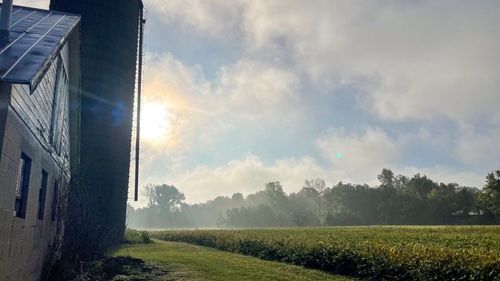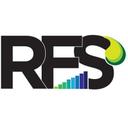Duvall leads White House meeting to urge prioritization of US crops for renewable fuel tax credits

SOURCE: AFBF, Morgan Walker
October 16, 2024
BY American Farm Bureau Federation
American Farm Bureau President Zippy Duvall on Oct. 15 urged the administration to prioritize American-grown crops in the production of sustainable fuels during a meeting at the White House organized by the AFBF. Duvall was joined by leaders from the National Corn Growers Association and American Soybean Association to urge Senior Advisor to the President for Clean Energy Innovation John Podesta to take action.
President Duvall said, “We appreciate John Podesta’s willingness to hear our concerns about the Clean Fuel Production Credit and the Sustainable Aviation Fuel Credit. Both have the potential to be valuable incentives to produce homegrown biofuels that will help lower the nation’s carbon emissions and keep America’s farmers economically sustainable, but improvements are needed. These are tax credits that should benefit Americans, not foreign companies.”
Advertisement
Crops used for clean, renewable fuels are grown in the United States with a smaller environmental footprint than anywhere else in the world. Yet current guidance to produce sustainable aviation fuel does not require the use of domestically grown feedstocks. This has resulted in interests from outside of the U.S. taking advantage of the credits at the expense of rural America. Cumbersome and unnecessary reporting demands also put the monetary benefit of participating in the market out of reach for many U.S. farmers.
Duvall and the other agriculture leaders called for the administration to move quickly in adopting workable regulations for the tax credits, saying, “Time is of the essence. The Clean Fuels Production Credit is scheduled to go into effect next year, and farmers must soon decide whether they are willing and able to participate in the program. We urge Mr. Podesta and the administration to prioritize America’s farmers by establishing a domestic feedstock requirement for clean fuel production credits, and revise guidelines to make the goal of producing efficient biofuels more attainable.”
Advertisement
Related Stories
More than 1.76 billion renewable identification numbers (RINs) were generated under the Renewable Fuel Standard in January, down from 1.91 billion generated during the same period of 2024, according to data released by the U.S. EPA on Feb. 20.
The U.S. EPA on Feb. 20 released updated small refinery exemption (SRE) data showing that 13 previously denied SRE petitions for Renewable Fuel Standard compliance years 2021 and 2022 are being reconsidered. No new SRE petitions were filed.
A coalition of biofuel, agriculture, fuel retailer and petroleum trade groups on Feb. 19 sent a letter to U.S. EPA Administrator Lee Zeldin urging the agency to set robust, timely, multiyear RFS RVOs for 2026 and beyond.
CVR pauses development of potential SAF projects pending regulatory, tax credit clarity
CVR Energy Inc. released fourth quarter financial results on Feb. 18, reporting reduced renewable diesel production. The company also said it is pausing development of SAF capacity pending clarity on government subsidies.
CARB on Feb. 18 announced that amendments to its LCFS program that were approved in November 2024 have been put on hold following the California Office of Administrative Law’s decision to disapprove the amendments due to clarity issues.
Upcoming Events










